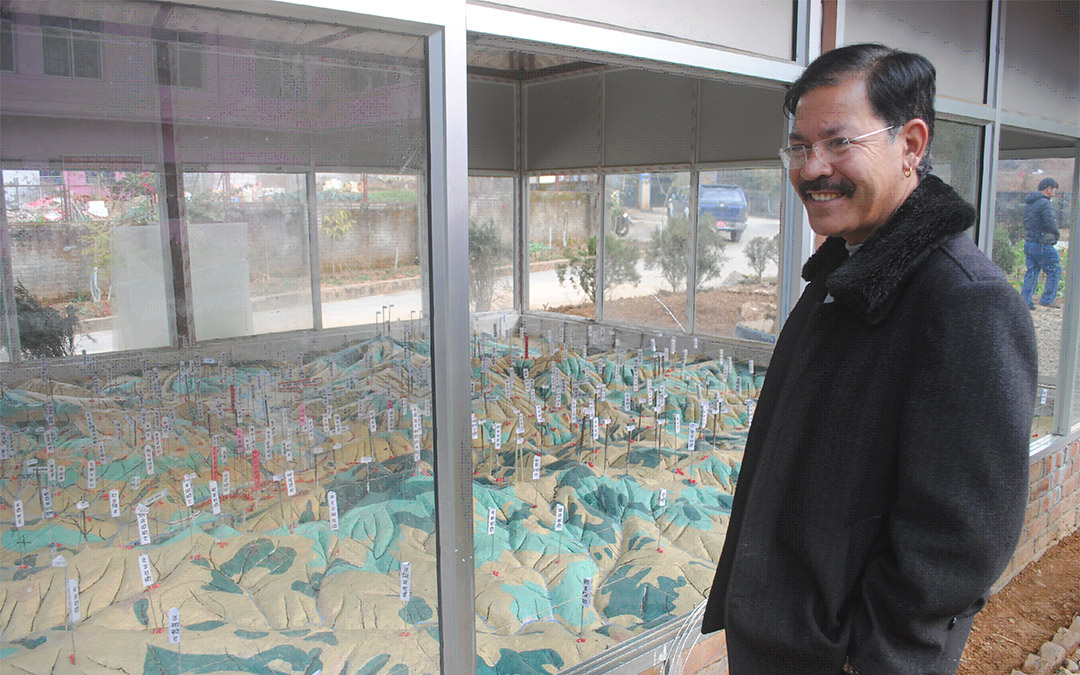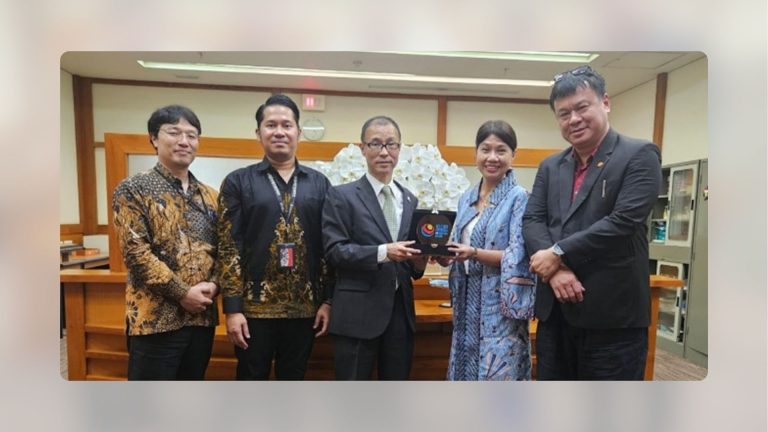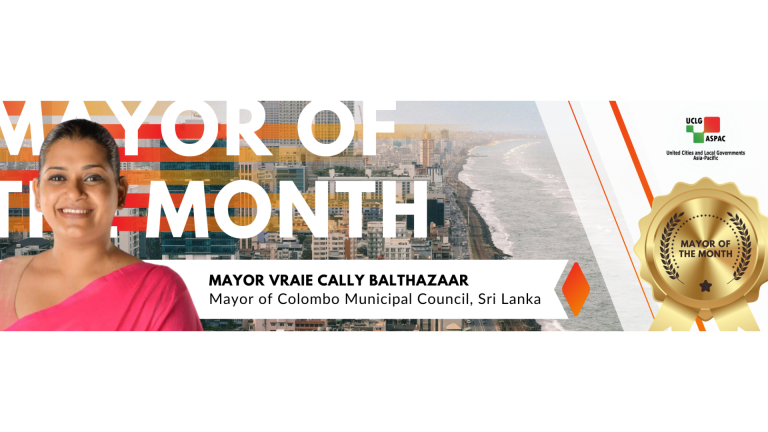UCLG ASPAC, through “Municipalities Network Advocacy in Sanitation in South Asia” project, has materialised its commitment to assist ten municipalities in Nepal and Bangladesh through MoU signing with respective municipality since end of 2018 up to early 2019. This project will, among others, develop and implement national policy and strategy on sanitation with focus on Faecal Sludge Management (FSM) and non-sewered sanitation system in line with SDG 6. Regarding this, UCLG ASPAC got the opportunity to talk to Dilip Pratap Khand, Mayor of Waling Municipality in Gandaki Province of Nepal, where the project has conducted the first level of orientation to local officials and training to employees of surrounding municipalities. He shared his insights, particularly on faecal sludge management, the municipality’s plans, and how the municipality has benefited from UCLG ASPAC’s support. The feasibility study to build faecal sludge treatment plant is currently underway.
Why is there a need for faecal sludge in your Municipality?
As part of our sanitation drive, we have already obtained an open defecation free (ODF) status. Even the garbage from houses are separated into degradable and non-degradable such as solid plastic but rising urbanization is leading us to think about managing our faecal sludge. We have experienced that the involvement of private parties to collect faecal sludge can be uncontrollable as they dump it anywhere they like or into our river systems leading to pollution and possible spread of diseases. Hence, we need to learn and bring the internationally practiced expertise and technology to properly manage our faecal waste and turn it into valuable resources. We are committed to adopt the public private partnership model by gathering our own resources. Our experience shows that the sewer system treatment model is more expensive than a faecal sludge treatment plant to reuse the waste. Let us make this happen as early as possible.
What is the Municipality’s plans?
The Solid Waste Management Act as well as the Local Governance Act in Nepal has given the authority entirely to the Municipalities. It is the responsibility of the local governments but their vision so far is very limited and focused only on segregating waste. Faecal sludge is the most important component as it also involves proper disposal while reutilising waste. Our area is a hilly region with houses spread out and rivers close to each other. We plan to make transport of faecal sludge more portable and even the Municipality wants to encourage private operators. We will charge a minimum fees and have already formed a committee to recommend the size of septic tanks to clear it within the next 2-3 years. All the new houses will follow such policy.
Is the Municipality overseeing the private operators?
The charges billed by private operators is currently a monopoly. We want to manage that. At least one to two vacuum trucks will be operated by the Municipality itself. We will monitor the cost of the transport and it will be the part of the building code. We will also develop an automated system that records transport. The signal system should be automated as in countries such as Indonesia.
How much support are you getting from locals to follow the septic tank construction rules?
The problems of the locals is also the problem of the Municipality. The current population has unnecessarily spent a lot of money and built huge septic tanks which has weakened their house structures. They will obviously accept it when they can build stronger structures at lesser costs. It is only lack of awareness.
Have you identified the land for the Faecal Sludge Treatment Plant (FSTP)?
We have roughly already identified the land for the purpose. It will be within the premises where we are also managing the solid waste. It will be easier to combine the pre-and-post composting system and have already allotted the budget accordingly. We are also testing the harvesting of earthworms for the process. The solid waste involves mostly clothes, glass and plastic. We want to recycle all these and even produce bitumen out of plastic.
Will such treatment plant be feasible?
It mostly depends upon the human resources and the team. It is also a service and should not always be looked upon as profitable. Once we develop a partnership between the Municipality and private operators, it will be more sustainable. If our benchmark and monitoring system is effective, we can just allow private players to operate freely. It has to be a win-win situation.
How can network of associations such as UCLG ASPAC support you?
When you give us the expertise. Do not give us money as it will not be sustainable for the long run. There is not going to be much ownership if Municipalities do not invest from their own pockets. I, as Mayor of Waling, would not be interested if you give us money. The requirement for us is the technology. There is need to build partnership within cities.
You seem to be quite knowledgeable on faecal sludge management. How?
I have my own interest on the subject. I am not from the technical background though I did study science. I believe, development and technology should go together. Most of the officials in the local governments have more of a political and lack a technical mindset. We cannot imagine development without technology. Waste management is both a technological as well as a political issue. But most of all, there should be more participation and lesser role of government.
What message do you want to give to other Mayors (both in-country and outside)?
The key role the Mayors in Nepal have to play is awareness raising. We need to consider faecal sludge management as a part of our culture. We cannot preserve our heritage if we have no respect for our culture. Hence, a developed mind means also a well-managed faecal sludge. How can we be civilized if we cannot manage the garbage we create ourselves? The key to most problems is to focus on management. In cities abroad, the government institutions and educational establishment work hand-in-hand for technical innovation. Hence, I request all Mayors (in Nepal) to consider faecal sludge management as part of our culture. In case of Mayors abroad, I am sure all of them are equally capable in their own territories. But I would request them to prioritize on sanitation; and make faecal sludge management a component within it. Countries and cities will be cleaner only if we are cleaner. What is the purpose of building a huge house if you dirty the nicely colored walls?
Quick Update
Dhulikhel Municipality in Province 3 of central Nepal’s Kavrepalanchowk district has become the fifth and final municipality to join the project in Nepal. Mayor Byanju Shrestha (also Co-President representing South West Asia sub-region) thanked UCLG ASPAC for the initiative in building the Municipality’s capacity in reaping benefits through fecal sludge rather than spending more money on sewer systems. “This is additional responsibility to our commitment to make our cities cleaner,” he said. “However, it is not possible without the partnership of the local people.”











